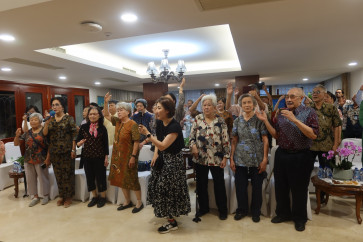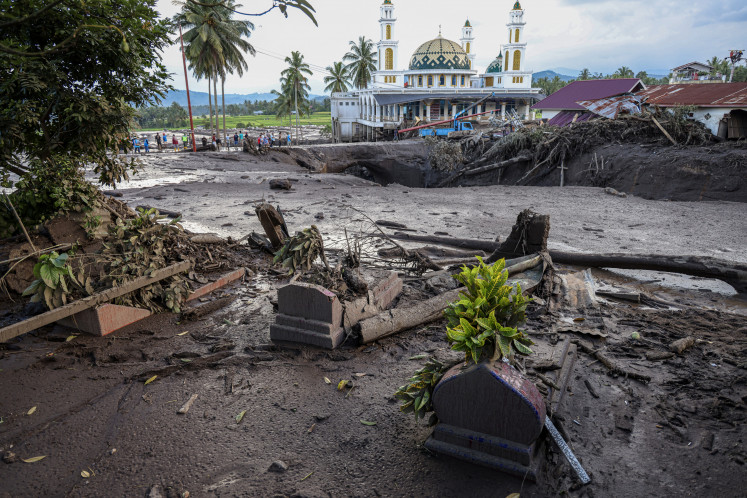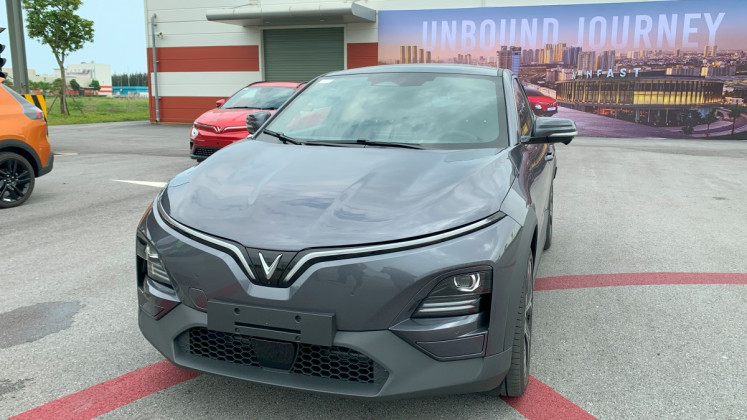Detailed spatial plans for OSS system not ready: Ministry
The Agrarian and Spatial Planning Ministry has made little progress in the implementation of spatial planning measures to complement the Online Single Submission (OSS) system, which was designed to assist investors and was soft launched by the Office of the Coordinating Economic Ministry on July 9
Change Size

T
he Agrarian and Spatial Planning Ministry has made little progress in the implementation of spatial planning measures to complement the Online Single Submission (OSS) system, which was designed to assist investors and was soft launched by the Office of the Coordinating Economic Ministry on July 9.
The measures, called detailed spatial plans [RDTR], have been slated for implementation in 250 cities and regencies across Indonesia to allow the government to ensure the equal distribution of investment and to improve the approval process for business location permit applications.
However, at the time the OSS went into effect, only 42 cities and regencies had implemented RDTRs, data from the ministry shows.
Agrarian and Spatial Planning Minister Sofyan Djalil said his office had made a proposal to the Finance Ministry to inject capital into at least 50 regions by the end of 2018 so they could implement the RDTRs.
“All regional administrations [in Indonesia] have allocations in their respective budgets for the RDTRs but not all have [implemented the plan] because the RDTRs are more of a second-stage planning phase,” Sofyan said on the sidelines of the ministry’s national working meeting on Tuesday.
All administrations, he added, had implemented the earlier stage of planning called the provincial spatial planning regulations [RTRW].
However, the RTRWs lacked the precision of the RDTRs. For example, the maps used in the RTRWs are scaled at 1:50,000, whereas the RDTRs include more detailed maps with a scale of 1:5,000.
“Administrations that do not yet have RDTR maps can use their RTRW maps as a reference but they will require our technical consideration and location permits because the scale of the maps [are less precise],” said Sofyan.
If the budget proposal is approved, the implementation of the RDTR could be extended to include 100 administrative areas by the end of this year.
The ministry estimated that 70 to 85 percent of investment in Indonesia would be in these 100 areas, he added.
Meanwhile, to implement its broader set of development programs, including agricultural reforms, the ministry will receive technical assistance and long-term loans worth US$200 million from the World Bank through the International Bank for Reconstruction and Development (IBRD).
Speaking on the same occasion, the ministry’s Infrastructure Director General Adi Darmawan said that an additional $300,000 would be disbursed by the IBRD in the near future.
The loan would have a 30-year tenor and would be paid off from the profits generated from development projects, he said.
“For example, seven provinces in Sumatra and Kalimantan have buffer zones designated for environmental protection that border directly with forests, so we need to strengthen infrastructure [in those areas],” Adi said. “Our partnership with the World Bank will help us do that.”
Additionally, the technical expertise and experience of the World Bank would also help the ministry upgrade its technology and work methods, he added.
The IBRD’s loan disbursement has been opposed by several civil society groups who have accused the World Bank of “land grabbing”.
In a press release issued on Tuesday, the Coalition for Infrastructure Development Monitoring (KPPI) said the loan was intolerable and would accelerate the commodification of land in Indonesia. “The participatory principle [of the World Bank] in land mapping is necessary,” it said. “However, how the project’s three main components will be executed has never been explained.”









